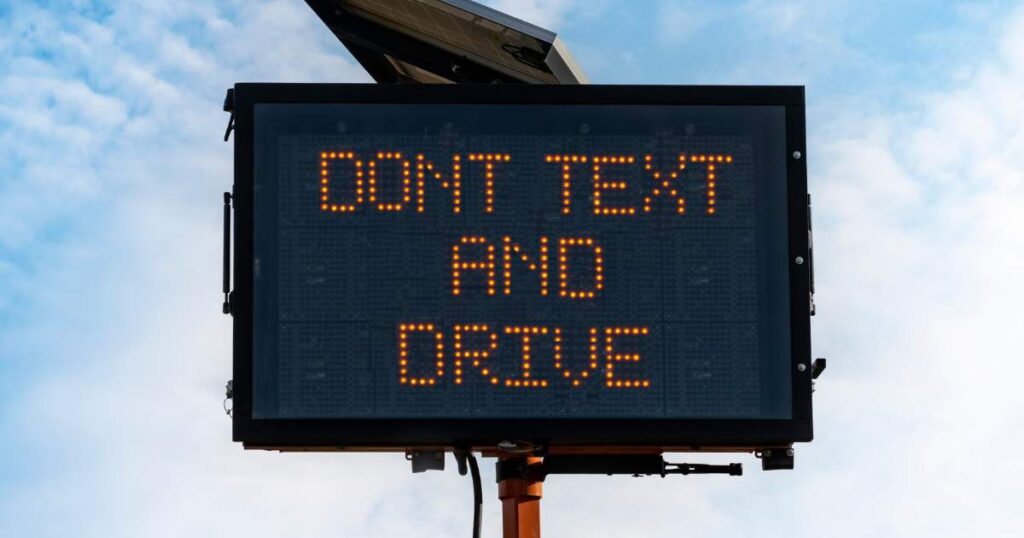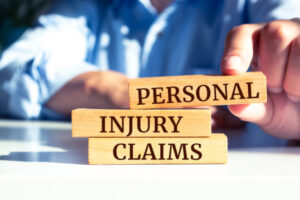Featured Article

In today’s fast-paced, technology-driven world, distracted driving has emerged as one of the leading causes of traffic accidents, injuries, and fatalities. The Law Office of David M. Kennedy has seen firsthand the devastating effects distracted driving can have on individuals and families. Among the most common distractions are texting, phone use, and other activities that divert a driver’s attention away from the road. Understanding these distractions, their dangers, and the legal implications can help keep you safe and inform you of your rights if you’ve been injured in a distracted driving accident.
What is Distracted Driving?
Distracted driving refers to any activity that diverts attention from the task of driving. This includes not only visual distractions (those that take your eyes off the road) but also manual distractions (taking your hands off the wheel) and cognitive distractions (taking your mind off driving). With the rise of smartphones and other technologies, drivers are more prone to distractions than ever before. The National Highway Traffic Safety Administration (NHTSA) reports that distracted driving claimed 3,142 lives in 2020 alone, and these numbers continue to rise.
The three primary types of distractions include:
- Visual Distractions: Anything that takes your eyes off the road, such as looking at a GPS device or a text message.
- Manual Distractions: Activities that cause a driver to take their hands off the steering wheel, like eating, drinking, or adjusting the radio.
- Cognitive Distractions: Mental distractions where the driver’s focus is diverted, like daydreaming or engaging in a heated conversation with a passenger.
The Dangers of Texting While Driving
Texting is one of the most dangerous distractions because it combines all three types of distractions: visual, manual, and cognitive. When a driver is texting, their eyes are typically off the road for at least five seconds. If you’re traveling at 55 mph, this is like driving the length of a football field with your eyes closed. It’s easy to understand how such behavior significantly increases the risk of accidents.
According to the Texas Department of Transportation (TxDOT), texting and driving is a significant factor in distracted driving-related crashes across the state. In 2017, Texas passed a law banning texting while driving, but despite this, many drivers continue to engage in the risky behavior. The law aims to reduce accidents, but enforcement can be challenging, and the temptation to quickly check a text is still strong for many drivers.
Phone Use Beyond Texting
While texting may be the most well-known form of distraction, phone use in general is hazardous. This includes activities such as:
- Talking on the phone: Even when using a hands-free device, talking on the phone can be a cognitive distraction. Your brain is dividing its attention between the conversation and the road, which reduces reaction times and awareness.
- Using navigation apps: Setting up or adjusting GPS directions while driving may seem necessary, but doing so can be just as dangerous as texting.
- Browsing social media or apps: Scrolling through social media or checking notifications is another distraction that takes your eyes off the road for extended periods.
In Texas, drivers under the age of 18 are prohibited from using a mobile device while driving, and school bus drivers are not allowed to use their phones if children are present. Still, the use of smartphones while driving is rampant across all age groups.
Other Common Distractions
While phones are the biggest culprits, other distractions can also contribute to accidents, including:
- Eating or drinking: Grabbing a quick bite or sipping coffee while driving may seem harmless, but it takes your hands off the wheel and your attention away from the road.
- Grooming: Activities like fixing your hair, putting on makeup, or even shaving can significantly impair a driver’s focus.
- Adjusting car controls: Changing the radio station, climate control, or settings on an in-car infotainment system can pull your attention away from driving.
- Passengers: Interacting with passengers, particularly young children or pets, can also be a major distraction.
- Daydreaming or “zoning out”: Sometimes, drivers aren’t even aware that they’re distracted because their minds wander. Long drives, fatigue, or stressful situations can cause cognitive distractions without any obvious visual or manual triggers.
Legal Implications of Distracted Driving in Texas
In Texas, distracted driving is considered negligence, and those injured in accidents caused by distracted drivers have the right to seek compensation for their injuries. If you’ve been injured in a distracted driving accident, it’s essential to understand your legal rights.
Proving Distracted Driving: In a personal injury case, proving that the other driver was distracted at the time of the accident is crucial. This can be done through various means, including obtaining phone records, witness testimony, or even using vehicle data from modern cars equipped with “black boxes” that record driver behavior.
Comparative Negligence in Texas: Texas operates under a “modified comparative negligence” rule, meaning that even if you were partially at fault for the accident, you can still recover damages if you were less than 51% responsible. However, your compensation will be reduced by the percentage of fault attributed to you.
How a Personal Injury Lawyer Can Help
If you’ve been injured in an accident caused by a distracted driver, you may be entitled to compensation for your medical bills, lost wages, pain and suffering, and other damages. A skilled personal injury lawyer can help you navigate the legal process, gather the necessary evidence, and fight for your rights.
It’s crucial to act quickly after an accident, as Texas law imposes a statute of limitations on personal injury claims. Generally, you have two years from the date of the accident to file a lawsuit, though there are exceptions in some cases.
Preventing Distracted Driving
While laws and enforcement play a role in reducing distracted driving, personal responsibility is key. As drivers, we all need to make a conscious effort to focus on the road and eliminate distractions. Here are some tips to stay safe:
- Put your phone away: Keep it out of reach to avoid temptation.
- Set your GPS before you start driving: Adjust it only when safely parked.
- Avoid multitasking: Don’t eat, groom, or engage in other activities while driving.
- Pull over if necessary: If you must attend to a distraction, find a safe place to stop.
- Turn off the radio: In heavy traffic or when looking for something, turn off the radio.
Conclusion
Distracted driving is a serious and preventable problem that causes thousands of accidents, injuries, and deaths each year. By staying vigilant and minimizing distractions, we can all help make the roads safer. If you or a loved one has been injured in an accident caused by a distracted driver, contact The Law Office of David M. Kennedy in Sherman, Texas, for a free consultation. We’re here to fight for the justice and compensation you deserve.




